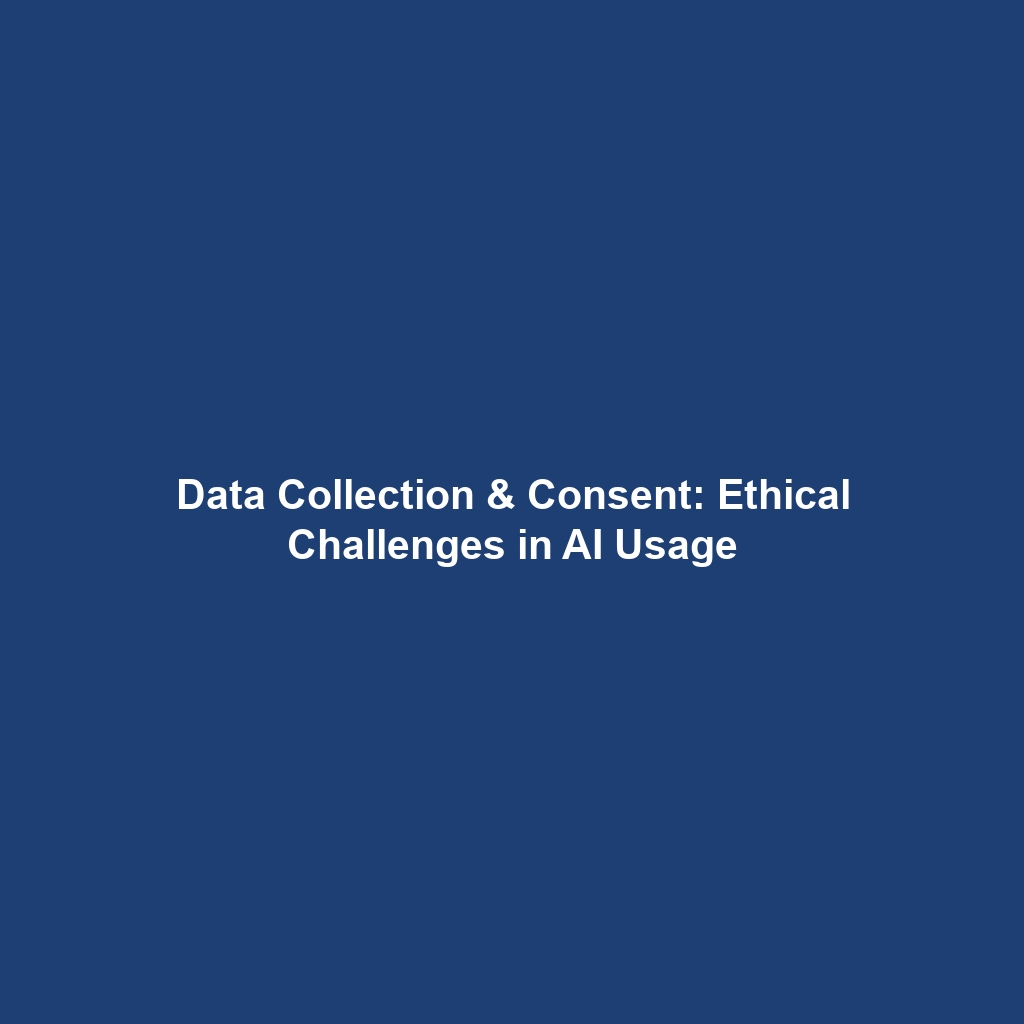Data Collection and Consent: Ethical Concerns in AI
Introduction:
The intersection of data collection and consent raises significant ethical concerns in the field of artificial intelligence (AI). As AI systems increasingly rely on vast amounts of personal data, the importance of understanding how this data is collected, used, and protected cannot be overstated. Ethical considerations surrounding data collection and consent form the backbone of AI ethics, informing guidelines, practices, and regulations that ensure responsible AI development. This article delves into the vital issues of data ethics, highlighting the significance of consent and ethical standards in AI practices.
Key Concepts
Understanding data collection and consent within AI ethics involves several major concepts, including:
- Informed Consent: Users must be clearly informed about how their data will be used, and consent must be obtained without coercion.
- Data Ownership: Questions surrounding who owns the data and the rights individuals have over their personal information are critical in AI ethics.
- Transparency: AI developers should maintain transparency regarding data usage practices, particularly when employing algorithms that make consequential decisions.
Applications and Real-World Uses
The ethical concerns surrounding data collection and consent manifest in various real-world applications. In healthcare, for instance, AI systems analyze patient data to improve diagnostics and treatment plans. However, the applications of AI in this context must navigate consent laws to respect patient privacy, highlighting how data collection is used in ethical AI development.
Current Challenges
A number of challenges complicate the study and application of data collection and consent in AI ethics, including:
- Complexity of Data Regulations: Navigating a landscape with varying data protection laws can hinder compliance and responsible data use.
- Public Awareness: Many users lack understanding of their rights regarding data privacy and consent, leading to uninformed data sharing.
- Algorithm Bias: Insufficient consent processes may result in biased data collection, impacting the fairness of AI outcomes.
Future Research and Innovations
Innovations aimed at enhancing data collection practices and consent mechanisms are underway. Future research may focus on developing new technologies, such as:
- Decentralized Data Storage: Protecting individual data ownership while allowing AI systems to operate efficiently.
- AI Accountability Frameworks: Establishing clear guidelines that hold AI developers accountable for ethical data collection and usage.
- Enhanced Consent Models: Creating advanced frameworks that ensure consent processes are user-friendly and adequately inform users.
Conclusion
In sum, data collection and consent are fundamental aspects of AI ethics that require ongoing attention and innovation. As AI continues to evolve, the ethical implications of how data is collected and used will only grow more significant. To promote responsible AI development, stakeholders must prioritize ethical practices in data collection. For further exploration of these themes, consider reading our articles on data privacy and AI fairness.
